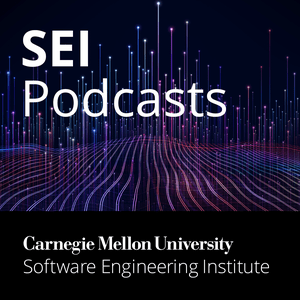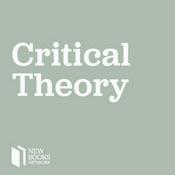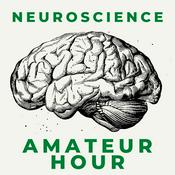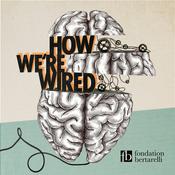Software Engineering Institute (SEI) Podcast Series

422 episodes

Orchestrating the Chaos: Protecting Wireless Networks from Cyber Attacks
2025/12/02 | 37 mins.
From early 2022 through late 2024, a group of threat actors publicly known as APT28 exploited known vulnerabilities, such as CVE-2022-38028, to remotely and wirelessly access sensitive information from a targeted company network. This attack did not require any hardware to be placed in the vicinity of the targeted company's network as the attackers were able to execute remotely from thousands of miles away. With the ubiquity of Wi-Fi, cellular networks, and Internet of Things (IoT) devices, the attack surface of communications-related vulnerabilities that can compromise data is extremely large and constantly expanding. In the latest podcast from the Carnegie Mellon University Software Engineering Institute (SEI) Joseph McIlvenny, a senior research scientist, and Michael Winter, vulnerability analysis technical manager, both with the SEI's CERT Division, discuss common radio frequency (RF) attacks and investigate how software and cybersecurity play key roles in preventing and mitigating these exploitations.

From Data to Performance: Understanding and Improving Your AI Model
2025/11/10 | 26 mins.
Modern data analytic methods and tools—including artificial intelligence (AI) and machine learning (ML) classifiers—are revolutionizing prediction capabilities and automation through their capacity to analyze and classify data. To produce such results, these methods depend on correlations. However, an overreliance on correlations can lead to prediction bias and reduced confidence in AI outputs. Drift in data and concept, evolving edge cases, and emerging phenomena can undermine the correlations that AI classifiers rely on. As the U.S. government increases its use of AI classifiers and predictors, these issues multiply (or use increase again). Subsequently, users may grow to distrust results. To address inaccurate erroneous correlations and predictions, we need new methods for ongoing testing and evaluation of AI and ML accuracy. In this podcast from the Carnegie Mellon University Software Engineering Institute (SEI), Nicholas Testa, a senior data scientist in the SEI's Software Solutions Division (SSD), and Crisanne Nolan, and Agile transformation engineer, also in SSD, sit down with Linda Parker Gates, Principal Investigator for this research and initiative lead for Software Acquisition Pathways at the SEI, to discuss the AI Robustness (AIR) tool, which allows users to gauge AI and ML classifier performance with data-based confidence.

What Could Possibly Go Wrong? Safety Analysis for AI Systems
2025/10/31 | 36 mins.
How can you ever know whether an LLM is safe to use? Even self-hosted LLM systems are vulnerable to adversarial prompts left on the internet and waiting to be found by system search engines. These attacks and others exploit the complexity of even seemingly secure AI systems. In our latest podcast from the Carnegie Mellon University Software Engineering Institute (SEI), David Schulker and Matthew Walsh, both senior data scientists in the SEI's CERT Division, sit down with Thomas Scanlon, lead of the CERT Data Science Technical Program, to discuss their work on System Theoretic Process Analysis, or STPA, a hazard-analysis technique uniquely suitable for dealing with AI complexity when assuring AI systems.

Getting Your Software Supply Chain In Tune with SBOM Harmonization
2025/10/23 | 23 mins.
Software bills of materials or SBOMs are critical to software security and supply chain risk management. Ideally, regardless of the SBOM tool, the output should be consistent for a given piece of software. But that is not always the case. The divergence of results can undermine confidence in software quality and security. In our latest podcast from the Carnegie Mellon University Software Engineering Institute (SEI), Jessie Jamieson, a senior cyber risk engineer in the SEI's CERT Division, sits down with Matt technical director of Risk and Resilience in CERT, to talk about how to achieve more accuracy in SBOMs and present and future SEI research on this front.

API Security: An Emerging Concern in Zero Trust Implementations
2025/10/08 | 17 mins.
Application programing interfaces, more commonly known as APIs, are the engines behind the majority of internet traffic. The pervasive and public nature of APIs have increased the attack surface of the systems and applications they are used in. In this podcast from the Carnegie Mellon University Software Engineering Institute (SEI), McKinley Sconiers-Hasan, a solutions engineer in the SEI's CERT Division, sits down with Tim Morrow, Situational Awareness Technical Manager, also with the CERT Division, to discuss emerging API security issues and the application of zero-trust architecture in securing those systems and applications.
More Science podcasts
Trending Science podcasts
About Software Engineering Institute (SEI) Podcast Series
Listen to Software Engineering Institute (SEI) Podcast Series, The Infinite Monkey Cage and many other podcasts from around the world with the radio.net app

Get the free radio.net app
- Stations and podcasts to bookmark
- Stream via Wi-Fi or Bluetooth
- Supports Carplay & Android Auto
- Many other app features
Get the free radio.net app
- Stations and podcasts to bookmark
- Stream via Wi-Fi or Bluetooth
- Supports Carplay & Android Auto
- Many other app features


Software Engineering Institute (SEI) Podcast Series
download the app,
start listening.





































